-
Notifications
You must be signed in to change notification settings - Fork 0
about OTLoV
When an incident happens - one has to troubleshoot what has happened. For hardware this is often done by collecting a standard set of diagnostic logs; less often for software, but still used. Each piece of the puzzle normally produces its own set of diagnostic logs.
If you are working with only 1 or 2 types of such logs - most likely you are an expert there already and know all ins and outs of those logs. You know places to look at, you know keywords to search for.
But what if you are working with 5-10-20 different types of logs? What if logs are difficult to read, have bad structure or misleading keywords? What if logs are dozens or hundreds MBs of text? Can you be sure you found the culprit? Can you be sure you found all the issues? Can you even just build full structure and connections?
That's where OTLoV could be helpful. It employs no magic. It does what ppl normally already do:
- search for keywords and highlight those,
- build a tree structure,
- build a navigational tree to easily access data,
- extract values, group those into data tables.
Unlike human being, a computer can process huge amount of text.
Is it difficult not to miss an error counter deep in logs? Highlight it. Difficult to filter out noise events? Split into subsections and filter those. Need inventory data or configuration overview? Extract and build data tables for instant views.
A few sample screenshots:
| Comment | OTLoV | Source |
|---|---|---|
| Disks inventory from store.logs (multiple storages from several vendors use this format). Source log is in XML format and each disk information takes a few screens. OTLoV can process that wall of text and aggregate into a single table. | 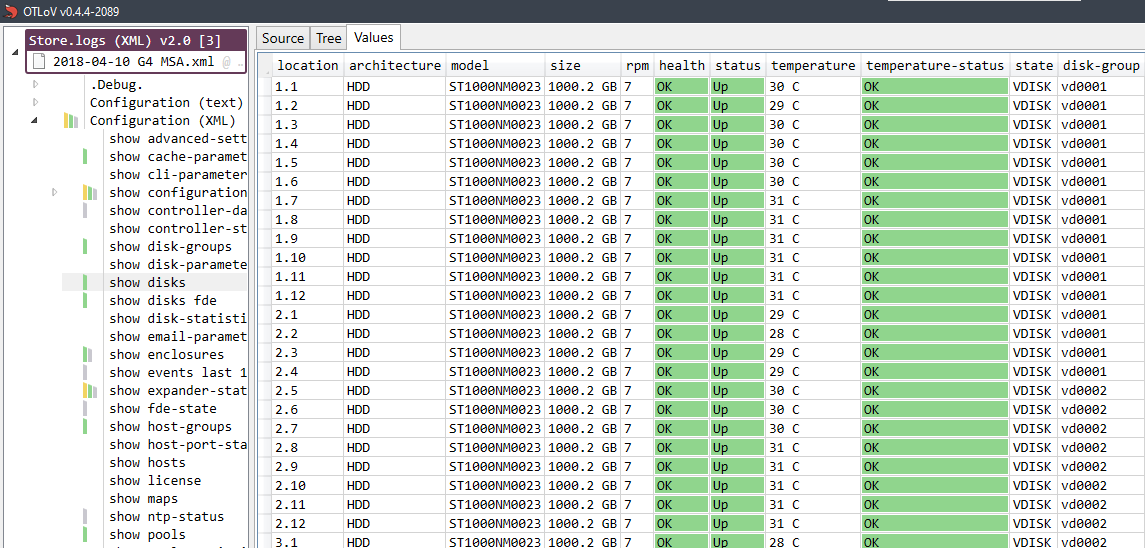 |
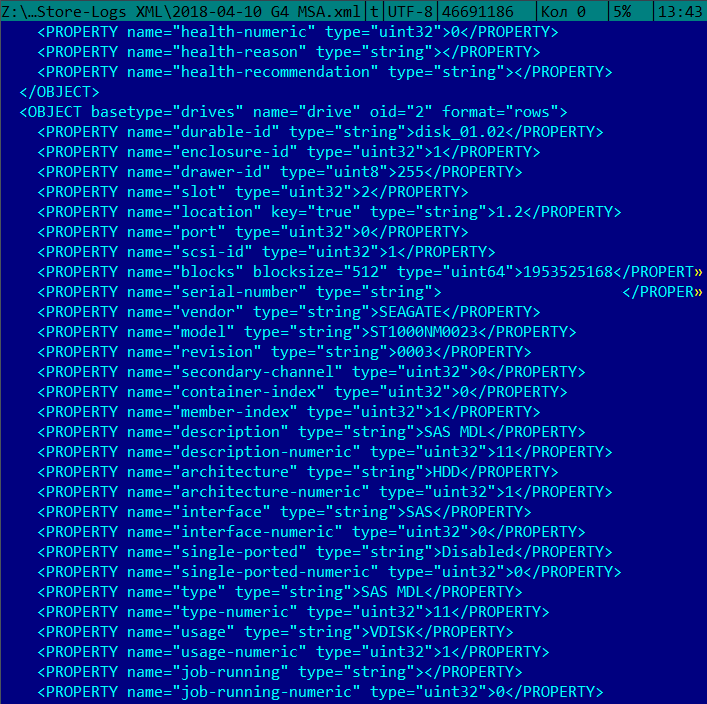 |
| One of PHYs was misbehaving (this became known after logs analysis and deep search), its counters were buried deep inside logs among hundreds of other counters. OTLoV can find that and highlight to guide you there. | 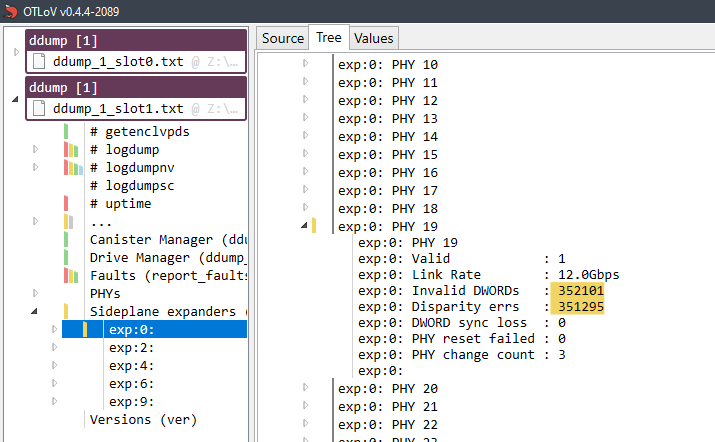 |
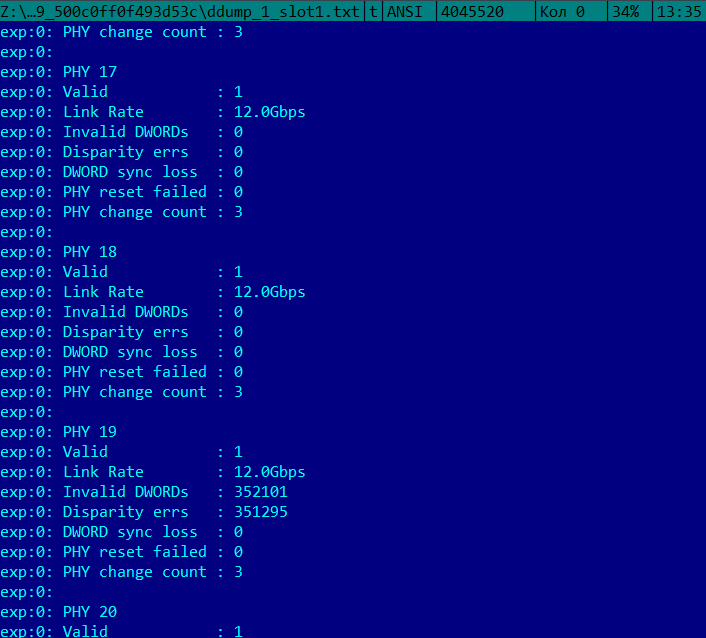 |
| A lot of statuses in one place. It's easy to miss some wrong ones. OTLoV won't let you miss that. | 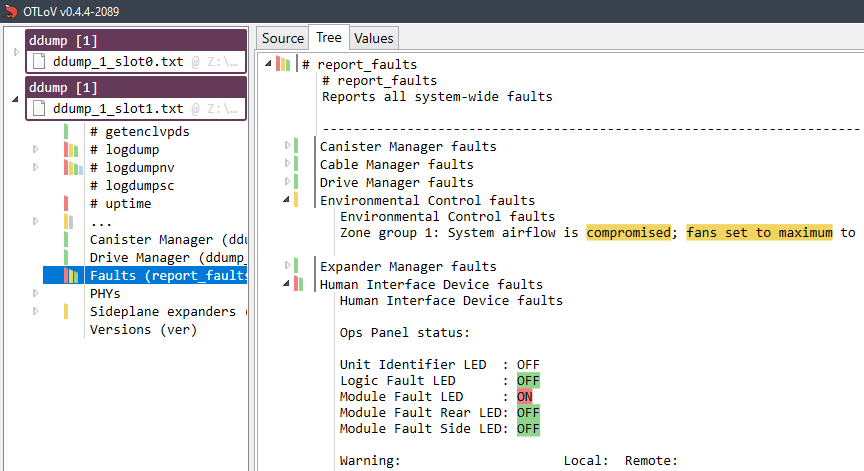 |
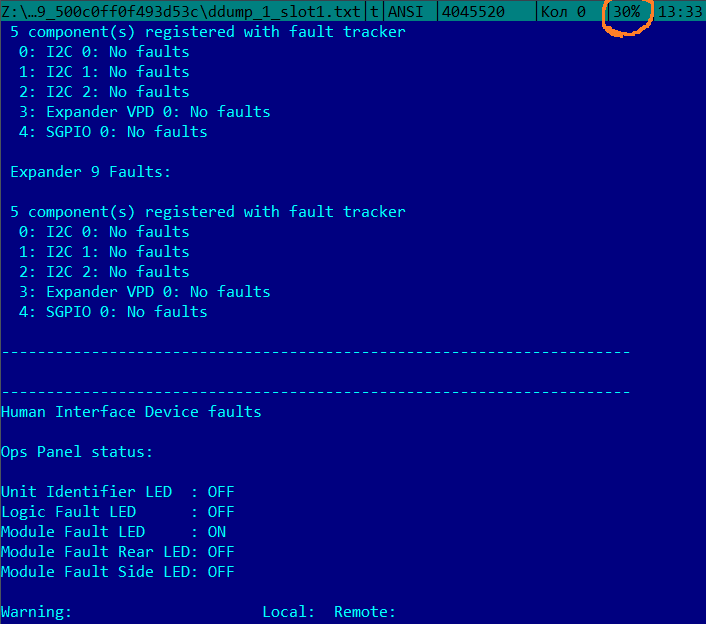 |
| I needed to check and compare TX/RX signal power from a Brocade switch SFPs. OTLoV filter gives me needed data instantly. | 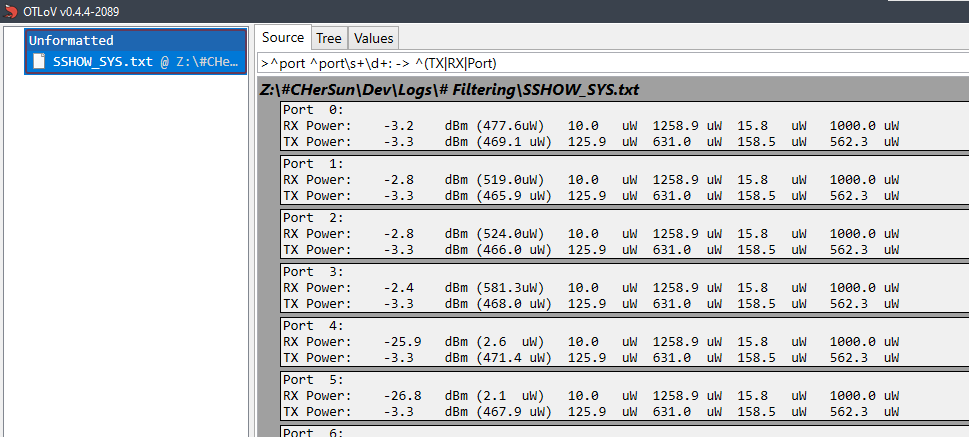 |
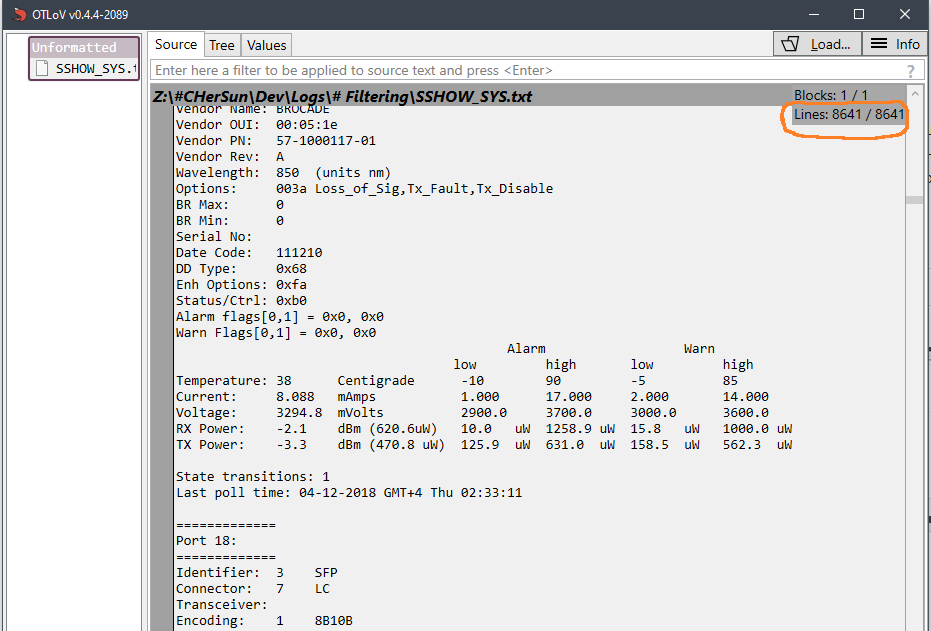 |
See next: First run